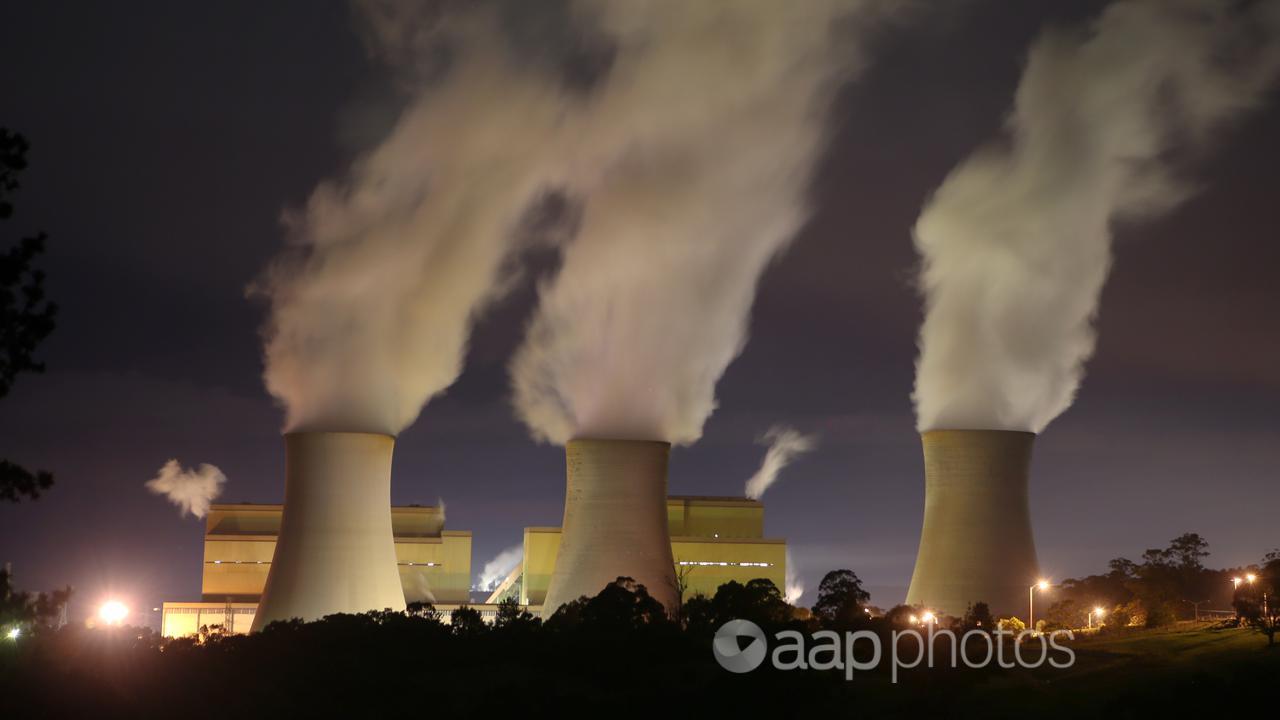Federal Resources and Water Minister Keith Pitt, who once resigned from a ministerial portfolio in opposition to the Paris agreement on climate change, has claimed his coalition government is responsible for a 20 per cent fall in Australia’s greenhouse gas (GHG) emissions.
The claim is false. When asked for the source of the claim that the coalition had overseen a 20 per cent reduction, the minister’s office directed AAP FactCheck to this government media release showing Australia’s emissions fell 20.4 per cent between 2005 – the year the Kyoto Protocol came into effect – and 2021.
Given the Liberal-National coalition government came to power in 2013, it is not accurate to credit it with the entire fall in emissions between 2005 and 2021. In fact, the majority of the reduction in Australia’s emissions since 2005 occurred during the 2007-2013 period when Labor was in office.
Speaking in parliament on February 16, Mr Pitt said: “We have reduced emissions by 20 per cent. No-one else has done that, not those opposite and no-one before us.” A video of Mr Pitt making the claim was later shared on his official Facebook page.
The Department of Industry, Science, Energy and Resources publishes quarterly updates of Australian GHG emissions going back to September 1999 and annual emissions going back to 1990. At the time of writing, both sets of figures go up to June 2021, the latest data available.
Annual figures, which are presented as financial years, show Australia’s net GHG emissions fell from 626.5 million tonnes CO2-equivalent (Mt) in 2004/05 to 498.9Mt in 2020/21, a drop of 20.4 per cent.
Since 2013, the year the coalition came to power, Australia's annual emissions have fallen from 560.6Mt to 498.9Mt, a drop of 61.7Mt or 11 per cent. That compares to a fall from 646.5Mt in 2007 to 560.6Mt in 2013 - a drop of 85.9Mt or 13.3 per cent - when Labor was last in government.
The seasonally-adjusted quarterly data, which can more closely be matched to the time each government served in office, also shows emissions dropped faster under the 2007-2013 Labor government than under the current coalition government.
Two experts in greenhouse gas emissions confirmed AAP FactCheck's analysis of the data.
Professor Frank Jotzo, head of energy at the ANU Institute for Climate, Energy and Disaster Solutions, said that, after peaking in 2007, Australia's greenhouse gas emissions fell under both Labor and the coalition.
"The main reason is that land-based emissions came down between 2007 to 2017, primarily as a result of less land clearing, and also as a result of natural processes," Prof Jotzo said in an email. "It is in the main not attributable to either the coalition or the previous Labor federal governments' actions."
Professor Tommy Wiedmann, a climate change expert at the University of New South Wales, said in an emailed response that it is accurate to say emissions fell faster under Labor than under the coalition, based on AAP FactCheck's analysis of the data.
It is "not accurate" to claim the coalition is responsible for a 20 per cent fall in emissions, Prof Wiedmann said.
The Verdict
Mr Pitt's claim the coalition government has reduced emissions by 20 per cent is not correct. While Australia's net emissions have reduced by about 20 per cent since 2005, the coalition has only been in government since 2013. The larger part of Australia's emissions reductions since 2005 happened during the 2007-2013 period when Labor was in government.
False - The claim is inaccurate.
* Editor's note: AAP FactCheck has expanded its ability to fact-check environmental issues with the support of the Australian Conservation Foundation. AAP FactCheck retains full editorial independence in this project and continues to apply the rigorous standards required for accredited members of the International Fact-Checking Network.
All information, text and images included on the AAP Websites is for personal use only and may not be re-written, copied, re-sold or re-distributed, framed, linked, shared onto social media or otherwise used whether for compensation of any kind or not, unless you have the prior written permission of AAP. For more information, please refer to our standard terms and conditions.


















